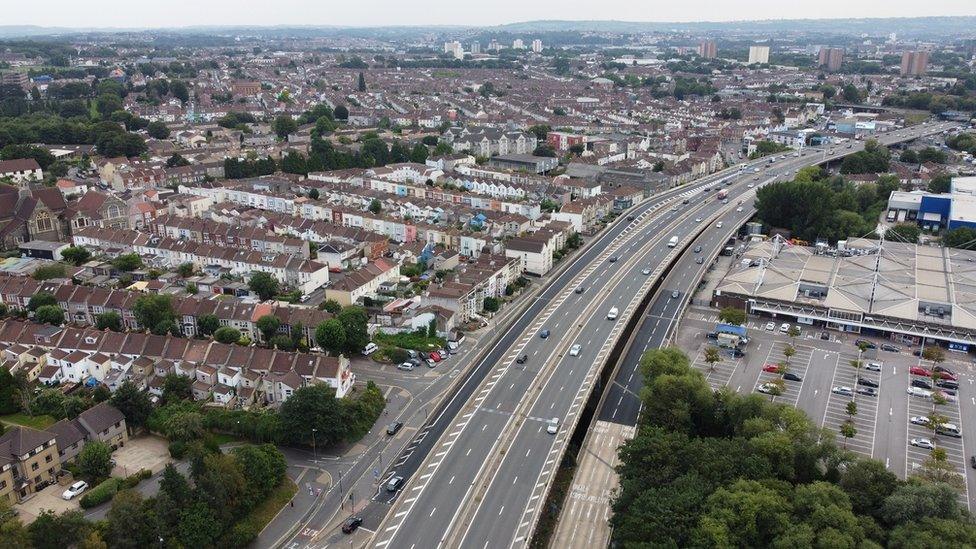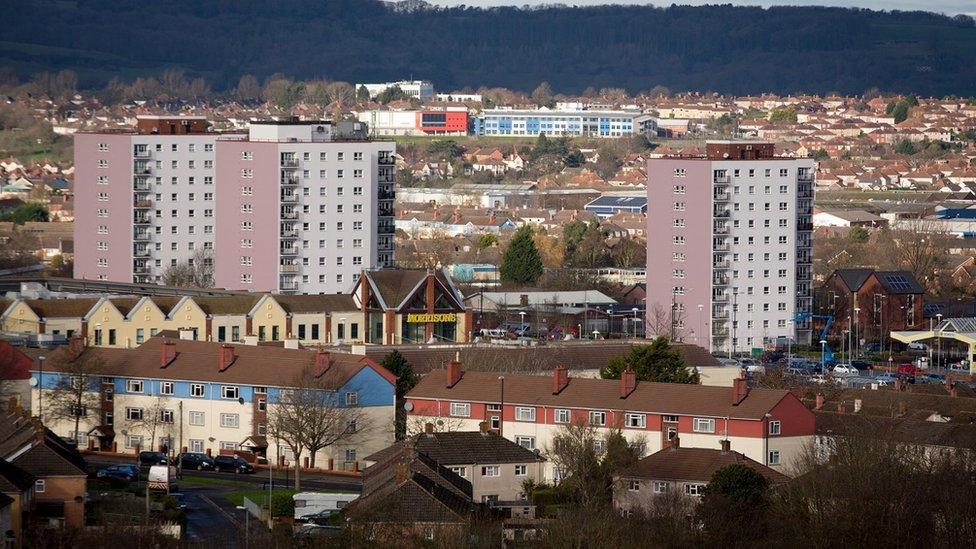Men in deprived parts of Bristol die 10 years younger says report
- Published

Life expectancy for men in inner city Bristol is 76.9 years
Men in the most deprived parts of Bristol die 10 years younger than those in the wealthiest areas, according to a new health report.
The report says the gap in life expectancy between the wealthiest and poorest areas "show no clear sign of reducing".
It calculates the gap as 9.9 years for males and 6.9 years for females.
The report also shows deprived areas had higher rates of teenage pregnancy and domestic abuse.
The report made to Bristol City Council health and wellbeing board, states the current average life expectancy for men is 78.5 years in Bristol, according to the Local Democracy Reporting Service.
The average life expectancy is 79.4 years for males, and 83.2 for women, in England.
The Joint Strategic Needs Assessment Health and Wellbeing Profile 2021/22 annual summary, external calculates the difference in life expectancy between the least and most deprived areas using the Slope Index of Inequality (SII).
This measures the estimated difference in life expectancy between the most deprived 10% of the population and the least deprived 10% within Bristol, not by comparing best and worst wards.
By sub-locality the lowest male life expectancy is in inner city Bristol with 76.9 years, and by ward is in Lawrence Hill with 73.7 years.

Some 56% of children under five in Hartcliffe and Withywood were assessed as having a good level of development
The report said men lived just over half a year longer than they did a decade ago and women roughly two months longer but that the latest figures had fallen slightly for both sexes year on year.
The annual data has exposed huge variations between the health and fortunes of residents depending on where they live, including vastly different rates of domestic abuse, child development and illness.
Child development was also lower in more deprived areas such as Hartcliffe and Withywood, as was the rate of breastfeeding take up.
Hartcliffe and Withywood was also identified as an area where people had a higher risk being overweight, along with Henbury and Brentry, Hillfields, Filwood, Avonmouth and Lawrence Weston and Bishopsworth all being significantly worse than the Bristol average for obesity.
Areas of deprivation also had higher rates of teenage pregnancy, admissions to hospital for alcohol related problems and women self harming.
The areas with higher deprivation rates also saw an increased chance of babies having a low birth weight, childhood obesity and increased smoking rates.

Follow BBC West on Facebook, external, Twitter, external and Instagram, external. Send your story ideas to: bristol@bbc.co.uk , external